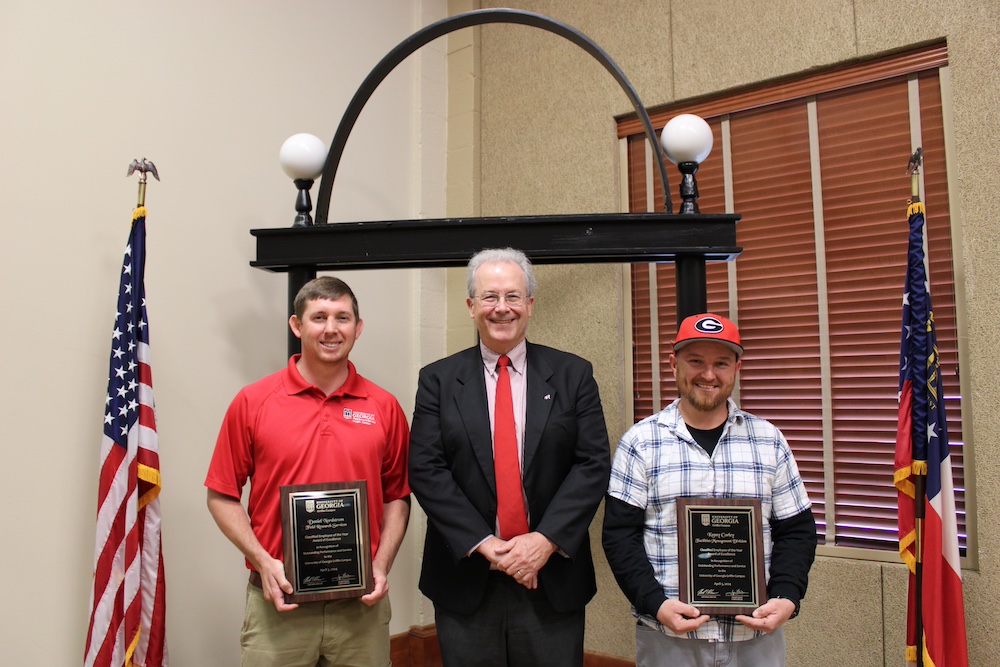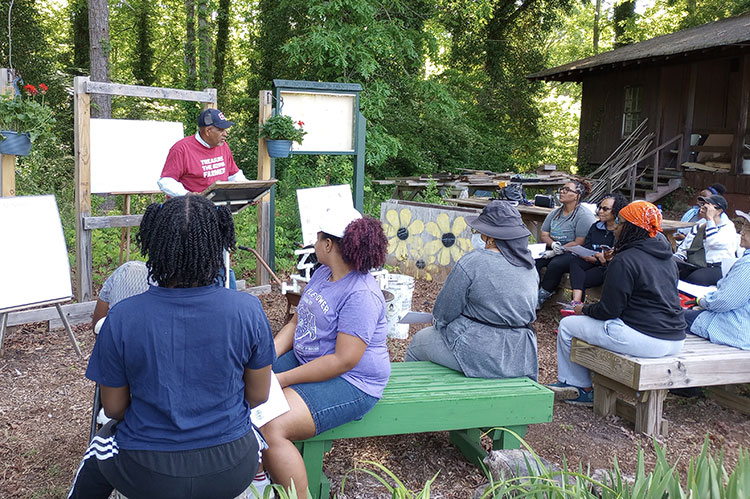By Mike Isbell
University of Georgia
Trawling off the Georgia coast was just one of many experiences the 130 seventh- and eighth-graders from all over Georgia had at Marine Resource Camp. The camp is sponsored by the University of Georgia Extension Service's 4-H program at the 4-H Camp on Jekyll Island.
The camp teaches the young people about the importance of our marine resources and about the importance of the barrier islands -- Cumberland, St. Simons, and the many others -- to these resources.
Wonderful counselors
Some wonderful, college-age counselors provide the leadership at camp. They teach most of the classes for the week: trawling, hiking through the maritime forest, beachcombing, seining for aquatic animals off the beach, exploring the marshes, canoeing a brackish-water pond, and walking on the beach at night to look for sea turtles laying eggs.In the herpetology class, environmental education instructors teach the 4-H-ers about reptiles found on the island. If the 4- Hers didn't get to hold the snakes, gopher tortoises and alligator they were shown, they at least got to touch them.
Yikes! Sharks!
And they all laughed at the antics and humor of one instructor while learning about the importance of sharks in our oceans.I really enjoyed the trawling trip most. I've done all those other things many times. But this was a chance to do something new and to be out on the water.
We had seen the big boats right off the beach each morning as they trawled for shrimp. Sea birds follow the trawlers, looking for some easy scavenging. And who knows what else might be following them?
Discovering a TED
Sea turtles are sometimes caught in the nets, and that's a big concern for the trawlers. They now have a device attached to their nets called a TED, or a Turtle Excluder Device. The TED allows the turtle to escape, and the counselors showed us how it works.Going trawling was a chance for everyone to relax a little and to see the island and all the yachts tied up at the docks and moorings. We relaxed until it was time to haul in the net.
Was this a typical "week at the beach"? Well, no, not exactly.






